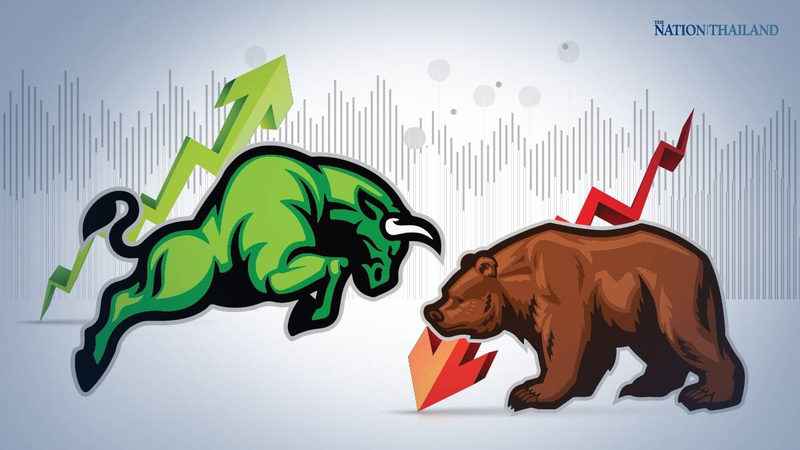U.S. futures markets retreat after G-7 falls short on specifics to combat coronavirus

U.S. stocks seesawed Tuesday, toggling between sudden gains and sharp losses based on how global financial leaders said they would respond — or not — to coronavirus's economic fallout.
Initially, markets dove after G-7 leaders failed to reassure investors they would be taking action soon to boost their economies. But then at 10 a.m., the Federal Reserve announced it would slash the benchmark U.S. interest rate by half a percentage point, sending the markets into a short-lived surge.
The Dow initially climbed 300 points off the news. But within 30 minutes, the index swerved 200 points back into the red, then popped up 140 points. The Standard and Poor's and Nasdaq composites also swung.
The Fed, whose leaders voted unanimously in favor of the rate cut, has not made an emergency reduction like this since 2008. The move would reduce the current interest rate to just below 1.25%, down from 1.75%.
The volatility carried through almost every point of Tuesday morning, with futures initially pointing upwards and then staging a U-turn. Group of Seven finance ministers and central bankers held a call to discuss how to respond to the outbreak. But a statement released afterwards contained no specific actions, prompting the futures drop.
"Alongside strengthening efforts to expand health services, G-7 finance ministers are ready to take actions, including fiscal measures where appropriate, to aid in the response to the virus and support the economy during this phase," the finance ministers and central bank governors said in a statement.
The whirlwind morning came just after Wall Street staged an explosive rally on Monday, shaking off its worst week since the 2008 financial crisis. The Dow Jones industrial average, the Standard & Poor's 500 and the Nasdaq composite all exited correction territory, and the Dow rose nearly 1,300 points, closing up 5.1%, its largest percentage gain since March 2009.
Markets appeared more stable in Europe. Britain's FTSE 100 climbed roughly 2.25%, , and Germany's DAX rose 2.8%. Asian stocks dipped, with Japan's Nikkei down 1.2% and Hong Kong's Hang Seng essentially flat.
Arturo Bris, professor of finance and lead of the IMD World Competitiveness Center at the IMD business school in Lausanne, Switzerland, said that markets and companies could hopefully come out of the outbreak with crisis response plans "that prevent the overreaction and panic we're in now — and help keep markets and economies stable even during the unthinkable."
"The virus, of course, is serious, but this is not the end of the world," Bris said. "In addition to making preparations for a pandemic, they also need to be planning for what comes after a pandemic, when things return to normal."
For weeks now, coronavirus has caused a rupture in global supply chains, particularly for goods manufactured and produced in China, where economic activity has largely stalled. And the longer fears swirl around the virus' spread, shaky consumer confidence could push Americans to rein in their spending. The world economy is now expected to have its worst year of growth since 2009, according to numerous forecasts. And Goldman Sachs is predicting no growth in the second quarter, which would be the worst quarter the country has experienced in six years.
"Stocks are likely to continue reacting to ebbs and flows in the news cycle, and it is too early to tell if Monday's 1,300 point rally in the Dow means a bottom is in place for stocks," said David Bahnsen, chief investment officer of The Bahnsen Group, based in Newport Beach, California, with over $2.25 billion in assets under management. "Economic damage has certainly been done, but how severe and for how long, remains to be seen."
Early Tuesday morning, President Donald Trump continued to call on the Fed to cut rates. Interest rates are already low, leaving little room for further reductions in the event of a recession. Still, Trump often attacks the central bank and Fed Chair Jerome Powell for not going far enough to heat up the economy.
"Our Federal Reserve has us paying higher rates than many others, when we should be paying less," Trump tweeted. "Tough on our exporters and puts the USA at a competitive disadvantage. Must be the other way around. Should ease and cut rate big. Jerome H. Powell led Federal Reserve has called it wrong from day one. Sad!"
In the United States, the number of confirmed cases surged past 100 in 15 states, with six people dead. There are at least 18 confirmed cases of coronavirus in Washington state, with evidence suggesting the virus may have spread undetected there for weeks.
Roughly 70 countries have reported incidences of the virus, and new countries are added to the list each day. In South Korea, the number of confirmed cases exceeded 5,000, the highest outside China. Government officials were placed on 24-hour alert, and health tests expanded in virus-hit areas. China, the epicenter of the outbreak and still the worst-hit country, announced its lowest number of new cases since late January.





